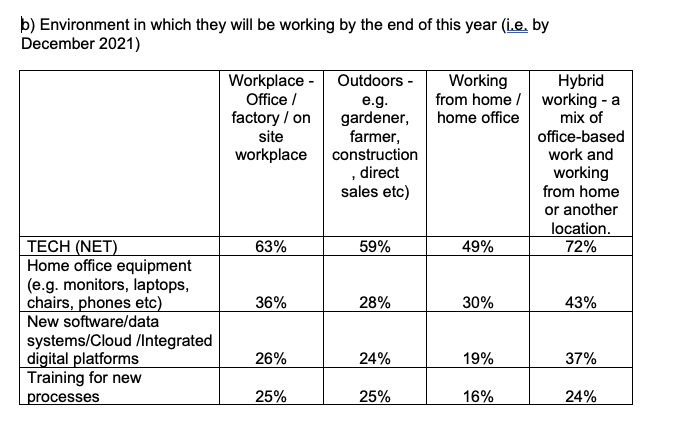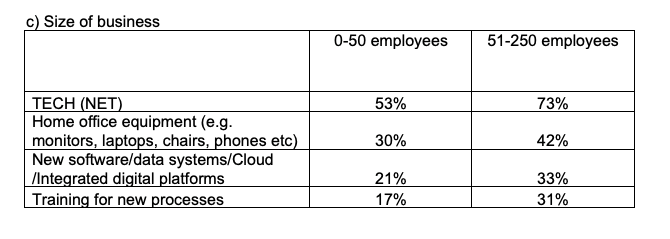The growing gap between tech-savvy companies and those struggling with the technology has been accelerated by the lockdown, with a big difference in the average amount of money invested in technology during that time, according to a new study by Hitachi Capital Business Finance will.
The study asked a sample of 1,464 small business executives across the UK about what areas of technology they had invested in during the lockdown – from new equipment, software and systems to training. It found that companies that took full advantage of new technology as part of their core business practices were twice as likely to invest as those who admit they struggled with technology (65% versus 33%).
In addition, the average amounts invested differed significantly between the two groups. In the past 18 months, the average tech-savvy small business had spent £ 42,389 on technology. In contrast, the average amount invested by those struggling with the technology was about a third of that – £ 15,097.
Specifically, the probability that tech-savvy companies invested in new software and systems during the lockdown was three times as high (30% vs). They committed twice as likely to deliver new software training to employees (36% vs. 15%), spending around twice as high on average (£ 15,607 vs.% vs. 10%, £ 10,335 vs. £ 3,214).
Hybrid companies ahead in technology investments
The research showed that hybrid companies (partly office, partly remote) have invested significantly more frequently in their company’s technology than other groups in the past 18 months. Three-quarters (74%) had invested in their company’s technical equipment, software and training, compared with 60% of companies that worked exclusively in the office and 55% worked exclusively from home.
More than a third (36%) of hybrid companies believed this investment would enable them to become more agile as a business, compared to just 18% of office workers and 21% of all remote workers. Likewise, 29% of hybrid business leaders believed this investment would increase productivity over the long term.
The danger of being left behind
The study also uncovered a technology investment gap in relation to the size of a business. Medium-sized companies (with 51-250 employees) have invested in their company’s technology significantly more frequently than smaller companies (73% versus 53%) in the last 18 months.
Again, half of medium-sized companies believe that this investment has made them more agile and productive as a company. Of smaller companies (> 50 employees), only a fifth (22%) believed they were more agile and a quarter (24%) believed they were more productive.
Joanna Morris, Head of Insight at Hitachi Capital Business Finance, comments:
“Lockdown brought the future forward almost overnight. Without warning, many companies have been forced to radically change the way they work, using technology to make it easier. As we emerge from the lockdown, the gap between companies that have technology at their heart and those that don’t will likely widen further. For companies struggling with technology, alarm bells should be ringing to make sure they aren’t left behind.
“Small business owners clearly placed great emphasis on home / remote work results. The amounts spent – large or small – in modernizing systems and developing technical skills can only mean a long-term investment plan for the entire small business community to enable a better way of working that meets the needs of both the employer and its employees. Part of our job is to encourage companies to think about their finances and help them understand that there are many options and options when it comes to funding. “
Spend areas to make working remotely easier



